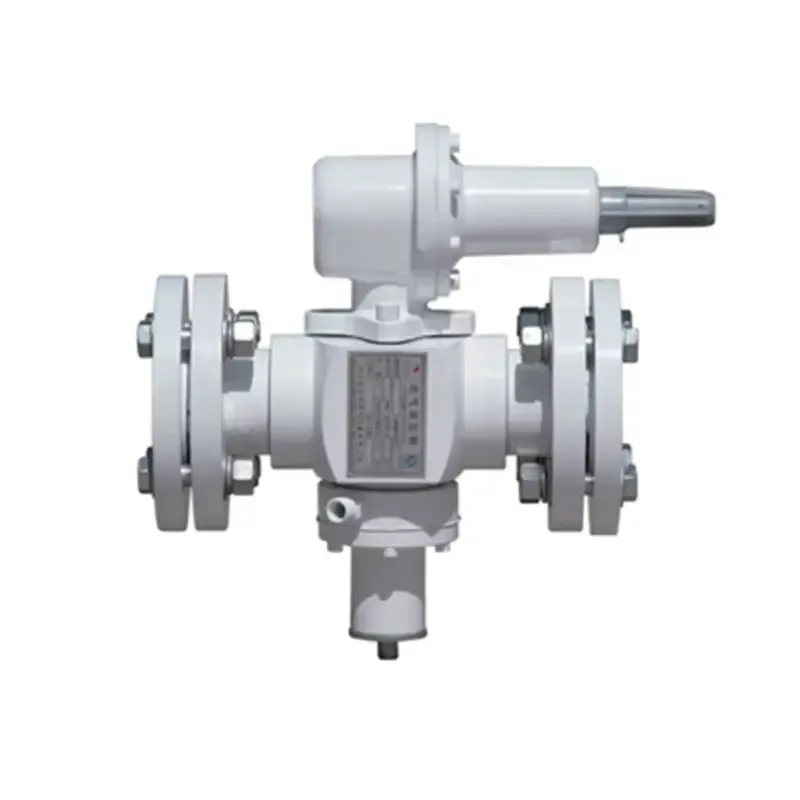
Dec . 05, 2024 15:04
Back to list
gas metering
Understanding Gas Metering A Key Component of Energy Management
Gas metering is an essential element in the management and distribution of natural gas, playing a crucial role in ensuring accurate measurement and monitoring of gas consumption. As the world increasingly relies on natural gas for residential, commercial, and industrial purposes, understanding the intricacies of gas metering becomes vital for both consumers and service providers.
At its core, gas metering involves measuring the volume of gas that flows through pipelines to end-users. This measurement is crucial for several reasons, including billing, energy management, and system reliability. Metering devices, commonly known as gas meters, are installed at various points throughout the gas supply chain, from production facilities to residential homes, to accurately record the quantity of gas consumed.
There are several types of gas meters utilized across different applications. The most common types include diaphragm meters, turbine meters, and ultrasonic meters. Diaphragm meters are widely used in residential applications due to their reliability and ease of use. They work by utilizing a flexible diaphragm, which expands and contracts as gas flows through the meter, measuring the volume accurately.
On the other hand, turbine meters are often employed in commercial and industrial settings, where higher flow rates are common. They operate using a turbine that spins as gas flows through it, with the speed of the spinning turbine correlating directly to the volume of gas passing through the meter. Ultrasonic meters are another advanced option; they use sound waves to measure the flow of gas, providing high accuracy and reliability, especially in varying temperature and pressure conditions.
gas metering

The importance of accurate gas metering cannot be overstated
. Accurate measurements ensure that consumers are billed correctly, which is essential for maintaining trust between gas suppliers and users. Additionally, precise data on gas consumption can help utility companies manage their supply more effectively, ensuring that demand is met without oversupply, which can lead to waste and economic inefficiency.Another critical aspect of gas metering is its role in energy efficiency and sustainability. Through accurate measurement, consumers can monitor their gas usage patterns and make informed decisions to reduce consumption and enhance energy efficiency. This is particularly important in the context of global efforts to reduce greenhouse gas emissions and combat climate change. By encouraging more efficient gas usage, metering contributes to a more sustainable energy future.
In recent years, technological advancements have significantly transformed gas metering practices. Smart gas meters, which are equipped with digital communication capabilities, enable real-time monitoring of gas consumption. These meters facilitate two-way communication between consumers and utility providers, allowing for more responsive customer service, timely leak detection, and better management of energy resources. Real-time data can also empower consumers to adjust their usage habits and explore alternative energy sources.
The integration of Internet of Things (IoT) technology into gas metering systems represents another leap forward. IoT-enabled meters can collect vast amounts of data, enabling analytics that can lead to more sophisticated energy management strategies. This evolution in gas metering not only enhances operational efficiency but also fosters innovation in how energy resources are consumed and managed.
In conclusion, gas metering is a fundamental aspect of the natural gas industry that affects consumers, utility providers, and the environment. With a variety of metering technologies available and ongoing advancements in smart metering solutions, accurate gas measurement continues to play a pivotal role in ensuring fair billing, efficient energy use, and a sustainable future. As energy demands grow and the shift towards smarter energy management systems gains momentum, the significance of gas metering will only continue to rise, underscoring its importance in the broader context of energy management and sustainability.
Latest news
-
Safety Valve Spring-Loaded Design Overpressure ProtectionNewsJul.25,2025
-
Precision Voltage Regulator AC5 Accuracy Grade PerformanceNewsJul.25,2025
-
Natural Gas Pressure Regulating Skid Industrial Pipeline ApplicationsNewsJul.25,2025
-
Natural Gas Filter Stainless Steel Mesh Element DesignNewsJul.25,2025
-
Gas Pressure Regulator Valve Direct-Acting Spring-Loaded DesignNewsJul.25,2025
-
Decompression Equipment Multi-Stage Heat Exchange System DesignNewsJul.25,2025

